
Weight Loss and Wheezing
Weight Loss and Wheezing
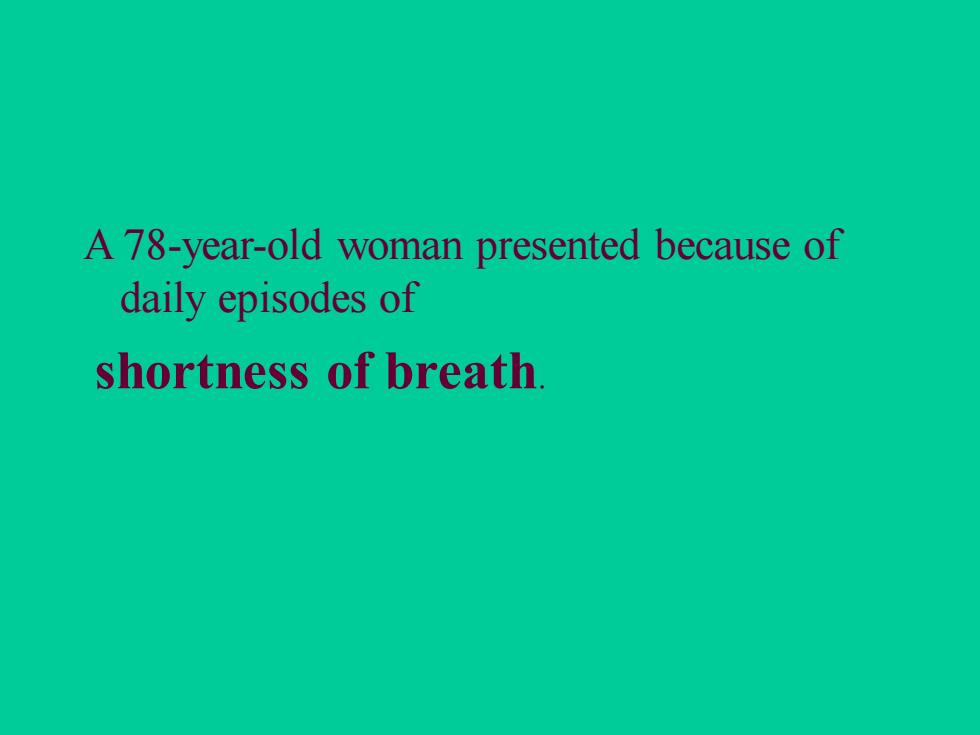
A 78-year-old woman presented because of daily episodes of shortness of breath
A 78-year-old woman presented because of daily episodes of shortness of breath
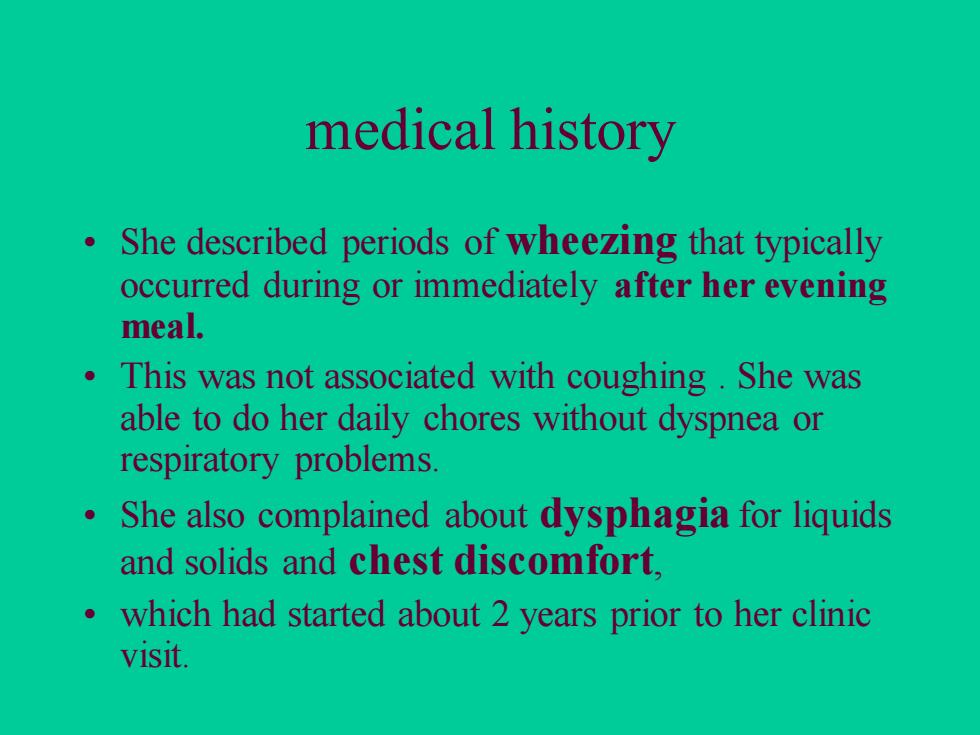
medical history She described periods of wheezing that typically occurred during or immediately after her evening meal. This was not associated with coughing.She was able to do her daily chores without dyspnea or respiratory problems. She also complained about dysphagia for liquids and solids and chest discomfort. which had started about 2 years prior to her clinic visIt
medical history • She described periods of wheezing that typically occurred during or immediately after her evening meal. • This was not associated with coughing . She was able to do her daily chores without dyspnea or respiratory problems. • She also complained about dysphagia for liquids and solids and chest discomfort, • which had started about 2 years prior to her clinic visit

She described her symptoms as burning retrosternal pain In the past she had used H,receptor blockers for presumed heartburn,which improved her symptoms slightly. Occasionally,she "choked"right after swallowing her food. She had lost about 7 kg over the last 2 years
• She described her symptoms as burning retrosternal pain. • In the past she had used H2 receptor blockers for presumed heartburn, which improved her symptoms slightly. • Occasionally, she "choked" right after swallowing her food. • She had lost about 7 kg over the last 2 years
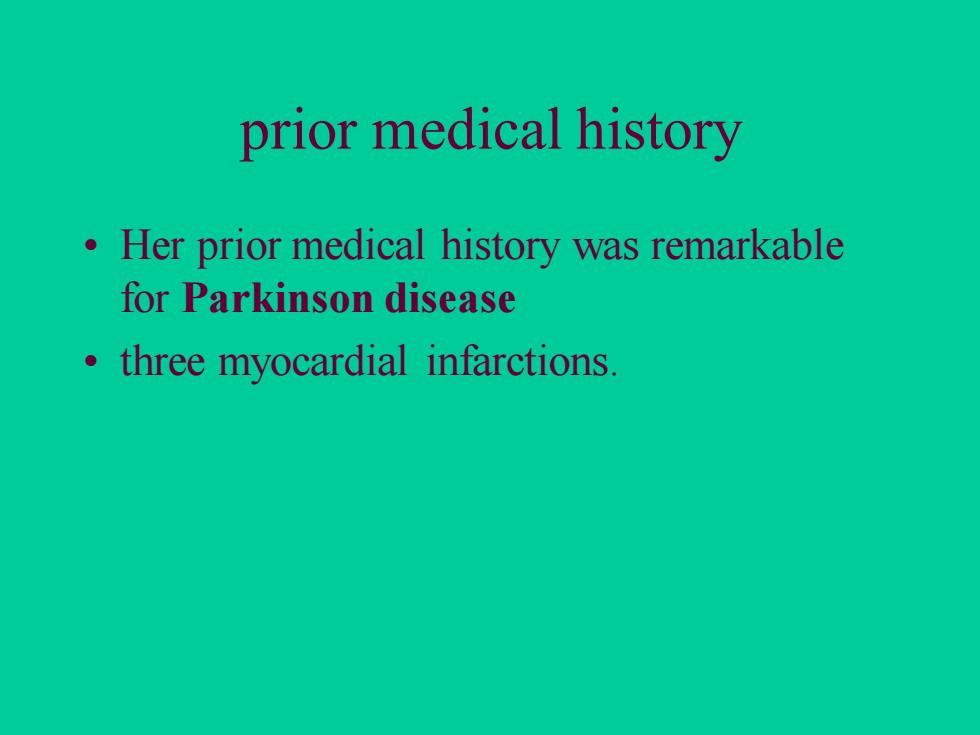
prior medical history Her prior medical history was remarkable for Parkinson disease three myocardial infarctions
prior medical history • Her prior medical history was remarkable for Parkinson disease • three myocardial infarctions
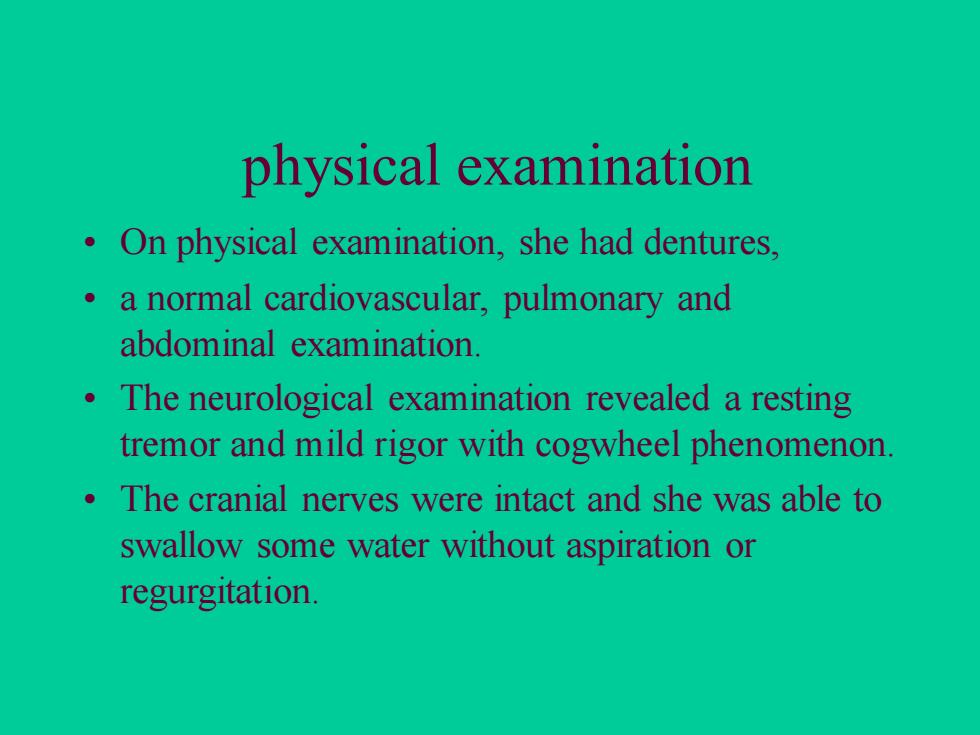
physical examination On physical examination,she had dentures, a normal cardiovascular,pulmonary and abdominal examination. The neurological examination revealed a resting tremor and mild rigor with cogwheel phenomenon. The cranial nerves were intact and she was able to swallow some water without aspiration or regurgitation
physical examination • On physical examination, she had dentures, • a normal cardiovascular, pulmonary and abdominal examination. • The neurological examination revealed a resting tremor and mild rigor with cogwheel phenomenon. • The cranial nerves were intact and she was able to swallow some water without aspiration or regurgitation
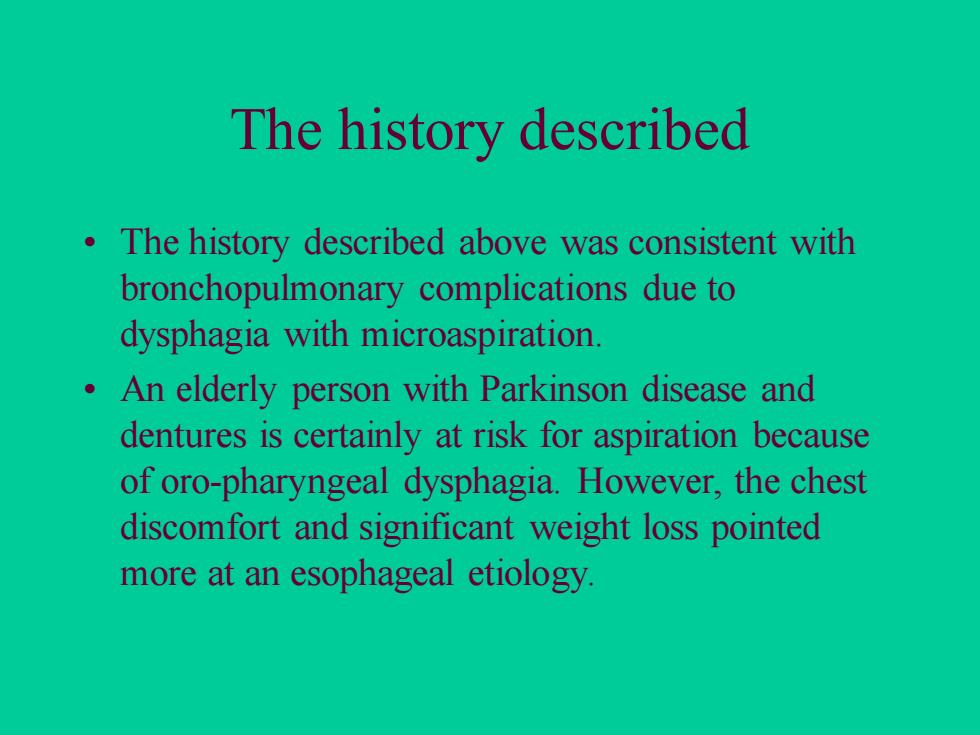
The history described The history described above was consistent with bronchopulmonary complications due to dysphagia with microaspiration. An elderly person with Parkinson disease and dentures is certainly at risk for aspiration because of oro-pharyngeal dysphagia.However,the chest discomfort and significant weight loss pointed more at an esophageal etiology
The history described • The history described above was consistent with bronchopulmonary complications due to dysphagia with microaspiration. • An elderly person with Parkinson disease and dentures is certainly at risk for aspiration because of oro-pharyngeal dysphagia. However, the chest discomfort and significant weight loss pointed more at an esophageal etiology
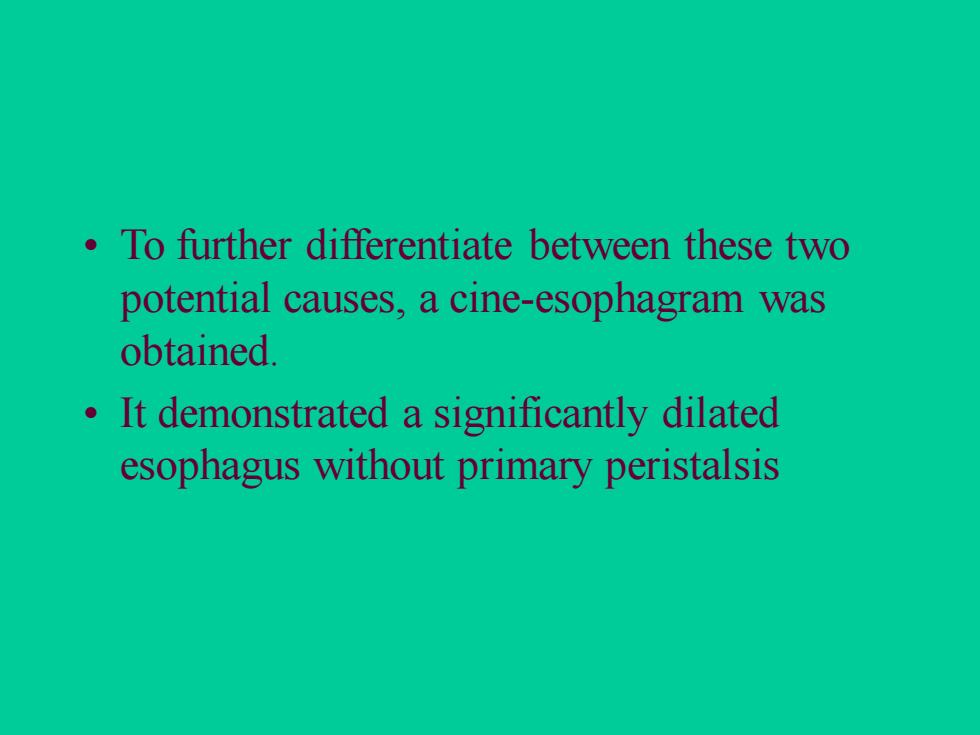
To further differentiate between these two potential causes,a cine-esophagram was obtained. It demonstrated a significantly dilated esophagus without primary peristalsis
• To further differentiate between these two potential causes, a cine-esophagram was obtained. • It demonstrated a significantly dilated esophagus without primary peristalsis
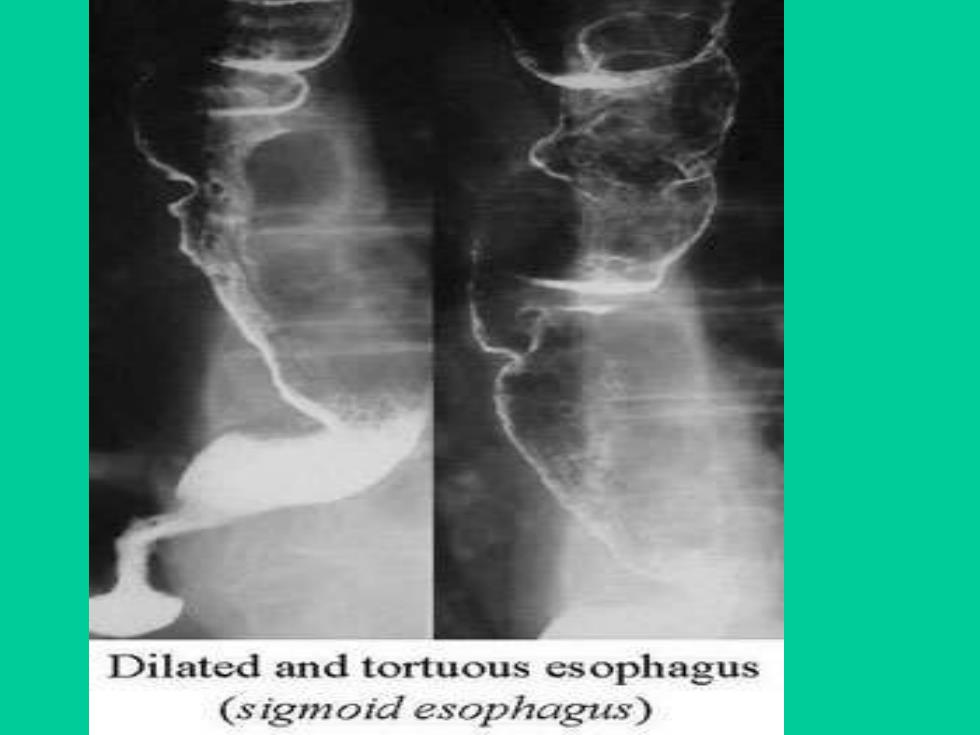
Dilated and tortuous esophagus (sigmoid esophagus)
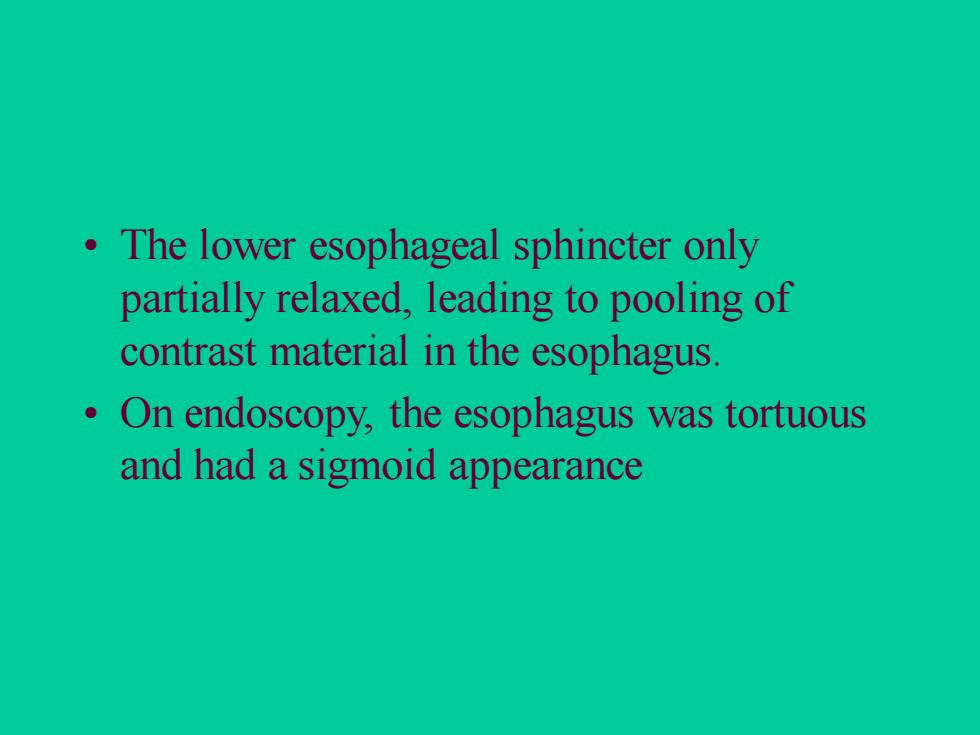
The lower esophageal sphincter only partially relaxed,leading to pooling of contrast material in the esophagus. On endoscopy,the esophagus was tortuous and had a sigmoid appearance
• The lower esophageal sphincter only partially relaxed, leading to pooling of contrast material in the esophagus. • On endoscopy, the esophagus was tortuous and had a sigmoid appearance